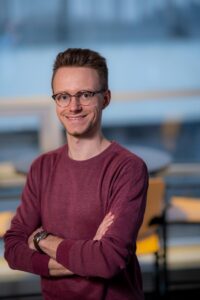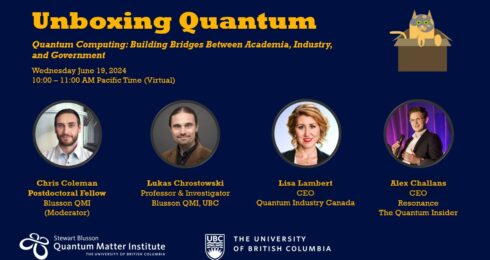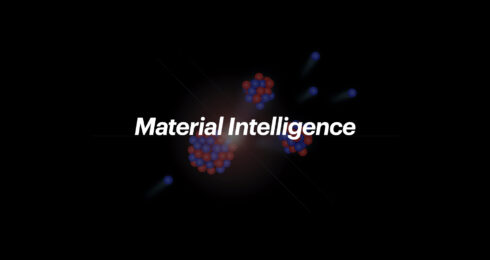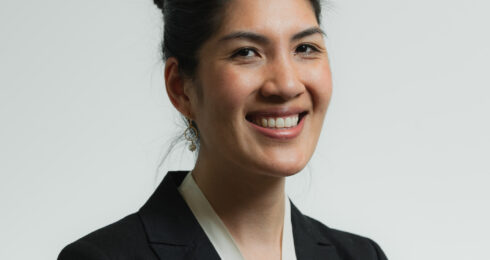Quantum machine learning models can achieve ‘quantum advantage’ by solving a complex class of mathematical problems that is impossible to crack with a classical computer, according to a new study by UBC researchers from Blusson QMI. The study was published in Nature Communications.
Quantum advantage refers to the instances where quantum computers outperform their classical counterparts when scaling to enormous datasets containing countless variables.
Blusson QMI Investigator Prof. Roman Krems said the results rigorously prove that quantum machine learning does indeed offer the quantum advantage.

Image: Ph.D. student and first author of the paper Jonas Jäger.
“The key goal now is to find a real-world machine learning application that would benefit from this quantum advantage in practice,” said Prof. Krems.
Ph.D. student and first author of the paper Jonas Jäger said the models have universal expressiveness in that they solve not just one problem, but capture the complexity of an entire class of problems that are too complicated to solve with classical machine learning.
“While quantum machine learning is often considered to be one of the most promising use cases of quantum computing, there are only a few rigorous results about its real computational advantages,” Jäger said. “Our results offer theoretical guarantees that such advantages indeed exist.”
The study proves a quantum advantage exists for two of the most popular quantum machine learning classification models: Variational Quantum Classifiers (also known as quantum neural networks) and Quantum Kernel Support Vector Machines.
“With this knowledge, we can now confidently explore important real-world applications and develop effective approaches for building informative data encoding quantum circuits that could unlock the full potential of quantum machine learning,” said Jäger.
The research points out that the advantages reported in the study are somewhat subject to the quality of the datasets presented to the system. As quantum computing is still very much in the experimental stage, a challenge faced by researchers is encoding the classical data for processing by a quantum device.
“The mathematical problem that we’ve solved using these models is quite abstract and doesn’t have many practical applications. But, because it presents such special properties under the complexity theory, it can be used by others as a benchmark to test how different quantum machine learning models perform,” Jäger said.
Jäger joined UBC in Sept 2022 to commence his Ph.D. studies under the supervision of Prof. Roman Krems from UBC’s Department of Chemistry and Prof. Michael Friedlander from UBC’s Computer Science Department.
Prof. Krems and his team work at the intersection of quantum physics, machine learning and chemistry on problems of relevance to quantum materials and quantum technologies, including quantum computing, quantum sensing and quantum algorithms. Prof. Friedlander and his research group develop theories and algorithms for mathematical optimization and its applications in machine learning, signal processing, and operations research. Jäger hopes to take advantage of their combined expertise to push the limits of quantum computing and develop algorithms that can harness its power for practical applications.
Read the research in Nature Communications, here.
Media contact: Shahrzad (Zad) Abbasi | 604 360 6761 | shahrzad.abbasi@ubc.ca


